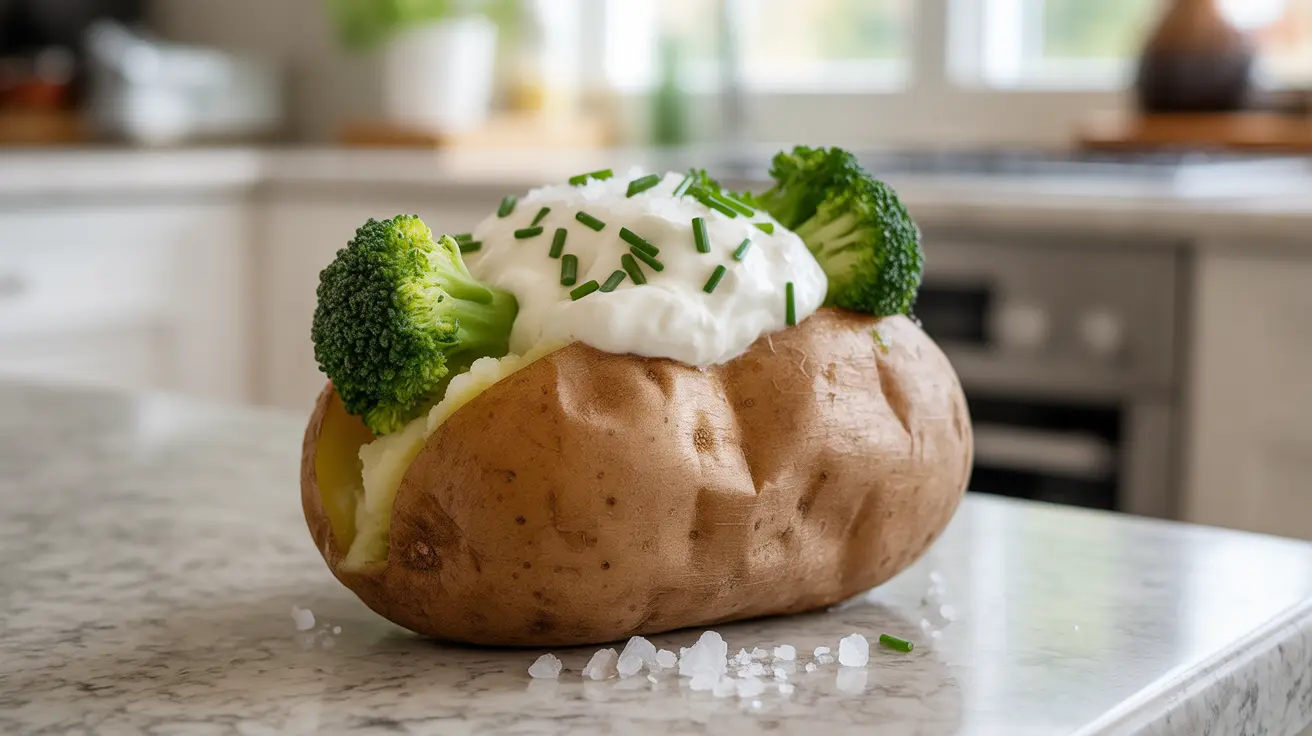Baked potatoes have long been a dietary staple, but many people wonder about their place in a healthy diet. Understanding the nutritional profile and health impacts of baked potatoes can help you make informed decisions about incorporating them into your meals.
This comprehensive guide explores the health benefits of baked potatoes, their nutritional value, and how to enjoy them as part of a balanced diet. We'll also address common concerns about blood sugar, weight management, and the best ways to prepare and serve them.
Nutritional Profile and Health Benefits
Baked potatoes are nutrient-dense vegetables that offer several essential vitamins and minerals. A medium-sized baked potato with skin contains significant amounts of vitamin C, vitamin B6, and potassium, making it a valuable addition to a balanced diet.
Key nutrients in a medium baked potato (173g) include:
- Potassium: 926mg (20% DV)
- Vitamin C: 17mg (19% DV)
- Vitamin B6: 0.5mg (30% DV)
- Fiber: 3.8g (14% DV)
- Protein: 4.3g
The Power of Potato Skin
The potato skin contains a considerable portion of the vegetable's nutrients, including fiber and minerals. Eating the skin increases the nutritional value of your baked potato while providing a satisfying texture and additional health benefits.
Smart Topping Choices for Maximum Health Benefits
While baked potatoes themselves are naturally healthy, toppings can significantly impact their nutritional value. Making informed choices about toppings can help maintain the potato's health benefits while enhancing flavor.
Healthy Topping Options
- Greek yogurt (protein-rich alternative to sour cream)
- Fresh herbs (chives, parsley, dill)
- Salsa or pico de gallo
- Steamed broccoli or other vegetables
- Olive oil with black pepper
Toppings to Limit
Some traditional toppings can add excessive calories, saturated fat, and sodium. Consider limiting:
- Regular sour cream
- Excessive butter or margarine
- Large amounts of cheese
- Bacon bits
Blood Sugar Management and Glycemic Impact
While baked potatoes do contain carbohydrates that can affect blood sugar levels, they can be part of a healthy diet when properly portioned and paired with other foods. Including protein and healthy fats in your meal can help moderate the glycemic impact.
The Science of Cooling and Resistant Starch
Cooling baked potatoes after cooking creates resistant starch, a type of fiber that can benefit gut health and blood sugar control. This process changes the structure of some starches, making them more difficult to digest and potentially more beneficial for health.
Frequently Asked Questions
Are baked potatoes healthy to eat every day, and what are their main nutritional benefits?
Baked potatoes can be part of a healthy daily diet when consumed in moderation. They provide essential nutrients like potassium, vitamin C, and B vitamins. Their main benefits include supporting heart health, providing sustained energy, and contributing to daily fiber intake.
What are the best and worst toppings for baked potatoes if I want to keep them healthy?
The best toppings include Greek yogurt, fresh herbs, olive oil, and vegetables. These add nutrition without excessive calories. The worst toppings are those high in saturated fat and sodium, such as large amounts of butter, regular sour cream, and bacon bits.
Can eating baked potatoes help lower blood pressure, and how much potassium do they have?
Yes, baked potatoes can help with blood pressure management due to their high potassium content. A medium baked potato contains about 926mg of potassium, roughly 20% of the daily recommended value, which helps counteract the effects of sodium and support healthy blood pressure.
Is it true that cooling a baked potato after cooking makes it healthier, and why?
Yes, cooling a baked potato after cooking increases its resistant starch content. This beneficial compound acts as a prebiotic fiber, supporting gut health and potentially improving blood sugar control. You can reheat the potato after cooling without losing these benefits.
Will eating baked potatoes cause my blood sugar to spike, and are they safe for people with diabetes?
While baked potatoes can affect blood sugar levels, they can be safely consumed by people with diabetes when properly portioned and combined with protein and healthy fats. Eating the skin, which contains fiber, and cooling the potato before consumption can help moderate their glycemic impact.




